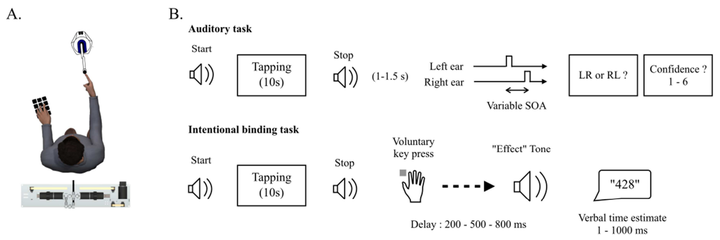Sensorimotor conflicts alter metacognitive and action monitoring

Abstract
While sensorimotor signals are known to modulate perception, little is known about their influence on higher-level cognitive processes. Here, we applied sensorimotor conflicts while participants performed a perceptual task followed by confidence judgments. Results showed that sensorimotor conflicts altered metacognitive monitoring by decreasing metacognitive performance. In a second experiment, we replicated this finding and extended our results by showing that sensorimotor conflicts also altered action monitoring, as measured implicitly through intentional binding. In a third experiment, we replicated the same effects on intentional binding with sensorimotor conflicts related to the hand rather than to the trunk. However, effects of hand sensorimotor conflicts on metacognitive monitoring were not significant. Taken together, our results suggest that metacognitive and action monitoring may involve endogenous, embodied processes involving sensorimotor signals which are informative regarding the state of the decider.